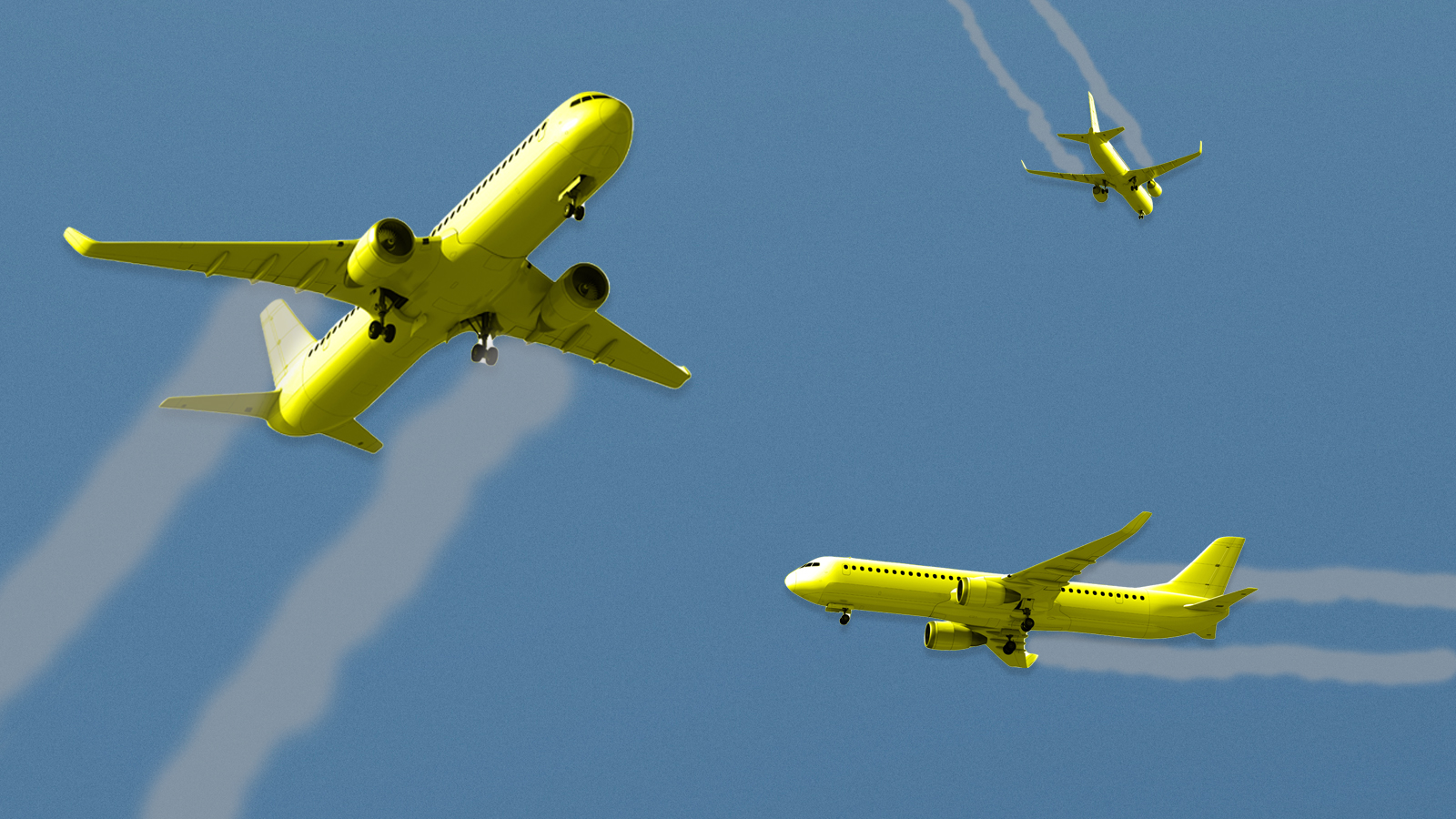Are plane rides getting bumpier?
How climate change might be making turbulence worse


A free daily email with the biggest news stories of the day – and the best features from TheWeek.com
You are now subscribed
Your newsletter sign-up was successful
Over the past few months, several airplane passengers have been injured due to significant in-flight turbulence. A passenger on a business jet was killed when the plane encountered "severe turbulence" while traveling from New Hampshire to Virginia. In a similar incident, seven passengers on a commercial Lufthansa flight were hospitalized after running into "clear-air turbulence." In December, 36 people were injured during turbulence on a Hawaiian Airlines flight. "These kinds of incidents might be getting more common" as the climate changes, CBS News reported.
How does climate change affect turbulence?
As extreme weather becomes more common due to a changing climate, weather-related turbulence will become more common. "Severe weather increases chances of turbulence, and due to climate change, these kinds of incidents will only continue to grow," Taylor Garland, spokesperson for the Association of Flight Attendants, told CBS News.
But the results of at least one study suggest changes in the jet stream and high-altitude wind speeds are also making for bumpier rides. A 2019 research paper published in the journal Nature found that "climate change is causing more instability in the jet streams and making wind speeds faster," as NPR summarized succinctly. Paul Williams, a professor of atmospheric science at the University of Reading in the United Kingdom, and the co-author of the 2019 study, also found that wind shear, which The Washington Post describes as "the degree to which wind speeds vary at different altitudes," has increased by 15 percent since 1979. When wind shear is high, "those differences in wind speeds create atmospheric disturbances much like rippling, if not raging, waves in a surging river," the Post adds. "It certainly implies more turbulence," Williams said.
The Week
Escape your echo chamber. Get the facts behind the news, plus analysis from multiple perspectives.

Sign up for The Week's Free Newsletters
From our morning news briefing to a weekly Good News Newsletter, get the best of The Week delivered directly to your inbox.
From our morning news briefing to a weekly Good News Newsletter, get the best of The Week delivered directly to your inbox.
Specifically, flights are more increasingly running into what's known as "clear-air turbulence."
What is 'clear-air turbulence'?
This kind of turbulence is "completely invisible to the naked eye, to the radar, to satellites," Williams told NPR. "The only information we have about it, really, is when a plane goes through it." This makes clear-air turbulence "one of the most dangerous kinds of turbulence," he said, because it takes everyone on board by surprise, leaving no time for safety measures that might prevent injuries. It was clear-air turbulence that caused the Lufthansa flight to unexpectedly drop 1,000 feet while traveling from Texas to Germany.
Researchers and aviation industry experts are working to better understand and predict the phenomenon.
Has turbulence caused more severe injuries on flights lately?
While "accidents on aircraft carrying passengers or cargo are uncommon," The New York Times says that "turbulence accounted for more than a third of such aircraft accidents from 2009 to 2018," per a report from the National Transportation Safety Board. The agency found that most of the accidents resulted in "one or more serious injuries but no aircraft damage." Most of those seriously injured were not wearing their seatbelts at the time.
A free daily email with the biggest news stories of the day – and the best features from TheWeek.com
According to Federal Aviation Administration data, 146 passengers and crew were seriously injured by turbulence between 2009 to 2021. Still, the Post says it "is harder to determine from available data" whether turbulence is affecting flights more often.
Williams' research, however, predicts that by 2050, pilots can expect to encounter twice as much severe clear-air turbulence.
Theara Coleman has worked as a staff writer at The Week since September 2022. She frequently writes about technology, education, literature and general news. She was previously a contributing writer and assistant editor at Honeysuckle Magazine, where she covered racial politics and cannabis industry news.
